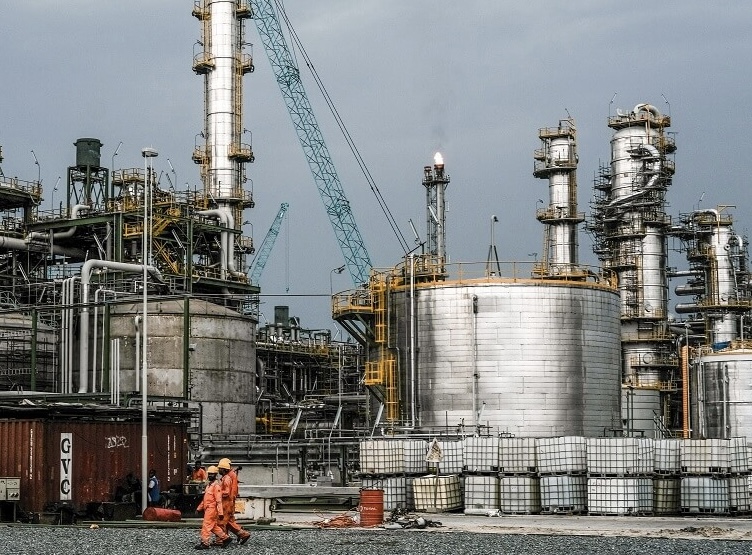KEY POINTS
- Nigeria warns oil producers to supply local refineries or lose export permits.
- Oil firms and refiners dispute pricing, delaying compliance with domestic supply rules.
- Dangote Refinery and others require 770,500 barrels per day in 2025.
Nigeria’s oil regulator is tightening enforcement of crude supply obligations, warning that export permits will be denied to producers who fail to meet refinery quotas.
The Nigerian Upstream Petroleum Regulatory Commission (NUPRC) issued a statement on Monday, making it clear that producers must supply domestic refineries, including the Dangote Refinery, before they can sell oil internationally.
Under the Petroleum Industry Act, oil producers, including international firms, are legally required to allocate crude oil for local refining before exporting. However, many producers have failed to comply, arguing that local refineries are not offering competitive prices.
In response, Dangote Refinery has called for stricter enforcement of the rule, pushing the regulator to act. NUPRC head Gbenga Komolafe warned that any producer diverting crude oil meant for local refineries could lose their export permits.
Oil companies and refineries clash over pricing issues
The dispute between oil producers and refiners came to a head during a meeting last week, where refiners accused producers of ignoring their obligations, while producers claimed local refineries were offering low prices.
Komolafe stated, “The diversion of crude cargo designated for domestic refineries is a contravention of the law, and the commission will henceforth disallow export permits for such crude.”
For the first half of 2025, Nigerian refineries require an estimated 770,500 barrels per day (bpd). According to Reuters, the Dangote Refinery alone is expected to need 550,000 bpd, according to figures from the NUPRC.
Despite this demand, producers argue they cannot sell crude at a loss, leading them to prioritize international buyers over local refineries. The government’s new push to enforce compliance could shift how Nigeria’s crude oil is allocated in the coming months.
Impact on Nigeria’s oil industry and market prices
The new policy could reshape Nigeria’s oil market, influencing export volumes and crude pricing. If enforced, some producers might have to cut international sales, while local refineries could see increased supplies.
According to market analysts, oil revenues face the risk of negative consequences due to producers who encounter challenges in managing domestic requirements against profit margins. Strong support exists for establishing local refining capacity as it directly enhances Nigeria’s future energy security.
The refining-oriented oil plan of Nigeria has industry stakeholders observing, to monitor government action regarding export restrictions. The outcome will have major implications for the country’s oil-dependent economy.



